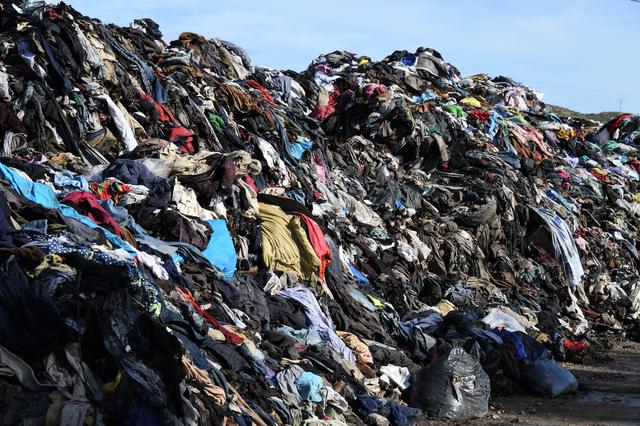A fashion industry criticized for environmental destruction.Levi's, H & M also relies on "Three Sustainable Strategy" | Business Insider JAPAN
Every year, consumers buy billions of dollars in cheap clothing and throw them away immediately.
The latest data shows that mass disposal by a business model called "fast fashion" does not improve immediately, despite the heavy load on the environment.
The fashion industry accounts for 10 % of the world's carbon dioxide emissions, consuming more water in all industries, and polluted microplastics into the sea.
According to a report from Research Gate, a researcher SNS, the energy consumed by fast fashion is higher than that of the aviation and shipping industry.
In addition, the demand for apparel raw materials is expected to tripled in the next 30 years, and the World Resources Institute (World Resources Institute) is expected to be extremely burdened to limited resources such as water, energy, and land. Warning.
Julian Born, the world's largest US fiber manufacturer, The Lycra Company, CEO and President, recognizes the environmental cost of fast fashion and recognizes the environmental cost of fast fashion.He wants the apparel brand to review the approach to sustainability.

As a help, Bone says that the company is working to shift the fashion industry to a circular economy (circulating economy).
既存の素材をできるだけ長くリユースやリサイクルする生産・消費モデルを構築するため、プライマーク(Primark)、リーバイス(Levi's)、H&Mと提携し、衣服の耐用年数を延ばし、長く着てもらえるよう取り組んでいる。
The fashion industry has been promoting fast fashion that has a serious impact on the environment.With the accusation of conscious consumers and environmental protection experts, Rikura has been seriously taking sustainability for more than 10 years.
Rikura Julian Bone CEO and President.
The Lycra Company
Since 2011, the Rikura factory has taken more than 250 energy -saving measures.In 2019, the company's sustainability report was announced in two factories that the energy strength (energy required to produce a certain amount) was reduced by more than 20%and more than half of the factories improved more than 10%.did.
"Our company has a long history of emphasizing social responsibilities, compliance, and safety in the industry as soon as possible. For many years, we have been doing the right thing and built trust, so we can lead sustainability."And Bone says.
How is Rikura, a fiber maker "giant", aims to keep the legacy of aiming for a more environmentally friendly fashion industry?Here are the three strategies you can see from the story of Bone.
